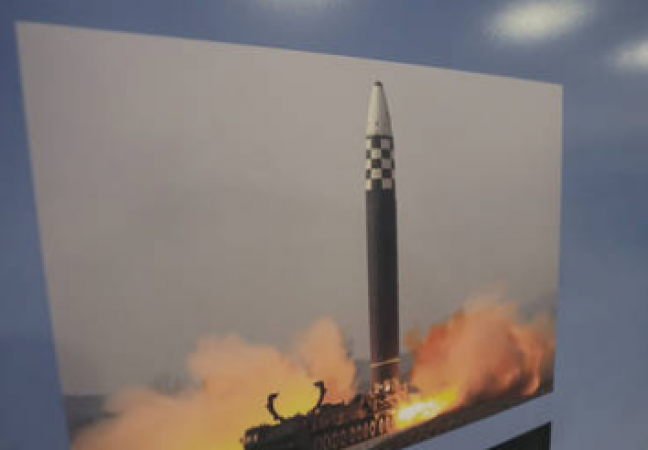
Seoul: In a concerning development, North Korea launched an "unidentified ballistic missile" from its eastern coastal city of Hamhung. The missile traveled approximately 470 kilometers (292 miles) before plunging into the sea, according to South Korea's military.
This launch, which marks North Korea's first since firing three missiles into the sea in April, has drawn swift condemnation from the United States, with the State Department labeling it a "serious escalation" of tensions.
The latest missile launch occurs amid a prolonged impasse in nuclear negotiations between North Korea and the United States. The absence of dialogue and diplomatic engagement between the two nations has persisted since 2019.
Also Read: White House Details Extensive Financial Commitment to Ukraine Exceeding $100 Billion
Meanwhile, North Korea has been actively advancing its ballistic missile program, conducting various tests, including intercontinental ballistic missiles (ICBMs) capable of reaching the United States. These launches have raised concerns not only about North Korea's nuclear ambitions but also its expanding missile capabilities.
The United States, in response to the missile launch, called on North Korea to halt its "destabilizing actions" and return to the negotiating table. The international community, too, has voiced its concerns. This latest provocation by North Korea is in violation of multiple United Nations Security Council resolutions and poses a palpable threat to regional and global peace and security.
The United States and its allies have implemented sanctions against North Korea in an effort to pressure the nation into relinquishing its nuclear weapons and missile programs. However, these sanctions have thus far failed to achieve the intended outcomes. North Korea has exhibited no indications of abandoning its nuclear capabilities, highlighting the limitations of the sanctions approach.
Also Read: Speaker Kevin McCarthy Initiates Impeachment Inquiry
The missile launch serves as a stark reminder of the persistent threat posed by North Korea. While diplomatic efforts have faltered, the international community remains committed to pressuring North Korea to denuclearize. The escalation of tensions underscores the urgency of addressing this complex and longstanding issue.
Given the escalating situation and the pressing threat to global security, it is imperative for the international community to take concerted action. Several key measures can be considered:
The resumption of diplomatic talks between North Korea and the United States is essential. Dialogue remains the most viable avenue for addressing the nuclear crisis.
Engaging regional stakeholders, particularly South Korea and China, is crucial. These nations have a direct interest in ensuring stability on the Korean Peninsula.
While sanctions have not yet yielded the desired results, a reassessment and strengthening of sanctions may be necessary. This should be pursued in conjunction with diplomatic efforts.
The international community must unanimously condemn North Korea's provocations. This includes robust enforcement of existing UN Security Council resolutions and the consideration of additional measures.
Amid the diplomatic and security challenges, it is crucial to ensure that humanitarian aid continues to reach the North Korean people, who often bear the brunt of international sanctions.
North Korea's recent ballistic missile launch, coupled with the ongoing deadlock in nuclear negotiations, underscores the urgency of addressing the crisis on the Korean Peninsula.
Also Read: Catastrophic Floods in Libya needs the world attention
The international community must come together to condemn such provocations and pursue diplomatic avenues for resolving the nuclear issue.
As the threat persists and tensions escalate, a multifaceted approach that combines diplomacy, regional engagement, and robust enforcement of sanctions is essential in seeking a peaceful and stable resolution to the North Korean nuclear challenge.